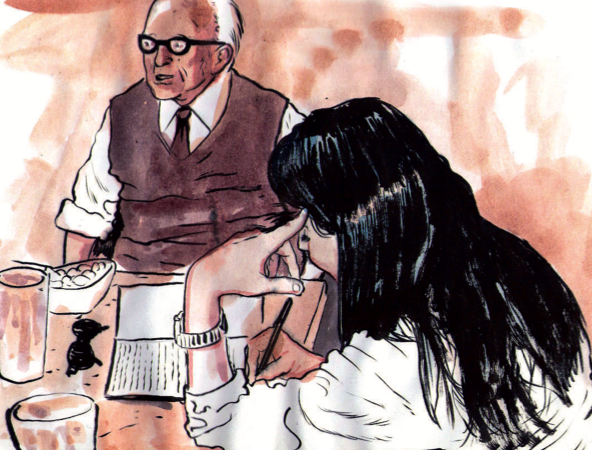“Boris Pahor, a testimony aware of his role”

The life and work of Boris Pahor, the Slovene novelist from Trieste who recently passed at 108, who survived the Nazi deportation and became one of the most important testimonies of the tragedies of the 20th century, was presented last week to the Committee on the Holocaust, Genocide and Crimes against Humanity during the plenary meeting of the International Holocaust Remembrance Alliance – IHRA in Gothenburg, Sweden. Among the panelist who explored the great intellectual’s legacy, Pagine Ebraiche journalist Daniela Gross brought her experience, recalling the meetings with Pahor that took place through the years within the frame of the journalistic laboratory Redazione aperta, which culminated in 2011 in a meaningful and touching interview.
The conversation lasted about two hours and “it was unforgettable for its tone and themes”, remarked Gross, remembering the preparation of the meeting, the relationship established with the author, and the interview highlights. “I was born in via del Monte 13, in a house at the top of the hill on which the Jewish school was located, in front of the old Jewish cemetery. In the evening my mother used to iron in the light of the street lamp hanging to illuminate the entrance”, Pahor told Pagine Ebraiche. And of his years as a boy, he remembered with joy “the walks in the ghetto before it was demolished, with its small shops and that unmistakable smell in which the scent of coffee mixed with the scent of fried fish”.
A central theme was his experience as a victim of persecution and deportation. He recalled that prisoners in the Nazi camps were kept separated and that in 14 months under life-threatening conditions he had only contact with a single Jewish fellow prisoner, at the Dora camp infirmary where he was suffering from typhus and tuberculosis.
“Something implied that the patient in the bed next to mine might be Jewish” he said. “I asked him and he simply replied, ‘Yes, unfortunately.’ That was the only contact I had at the time with the Jewish world.” Nazi jailers distinguished between political activists and Jews, he recalled. “We as political activists were guilty of having organized to fight against them, whereas Jews were guilty because of who they were”. On this issue, Gross explained that Pahor refused to draw any comparison between his and the Jewish experience, and insisted on the unique sufferings of prisoners. “His was not a revisionist effort, as it may sound. Instead, he was deeply aware of his responsibility as a testimony”. Also, for this reason, he made no secret of his concern about “the political exploitation of the past, the resurgence of totalitarian regimes, and new generations education.
Above, the interview by Daniela Gross with Boris Pahor in an illustration by Giorgio Albertini
